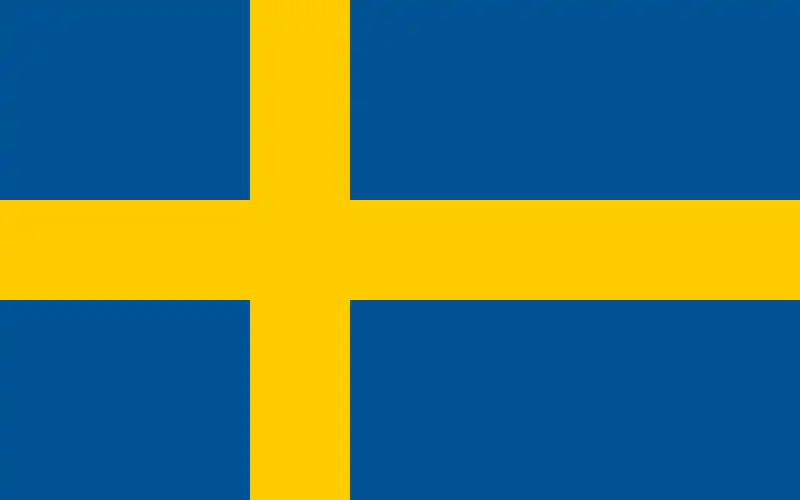Sweden - statistical data
Sweden is a Scandinavian country located in Northern Europe, bordered by Norway to the west and Finland to the east. It is known for its vast forests, numerous lakes, and long coastline along the Baltic Sea. The country has a diverse landscape, with mountains in the northwest, rolling hills in the south, and flat plains in the east.
With a population of approximately 10.4 million people, Sweden is one of the most sparsely populated countries in Europe. The majority of the population resides in urban areas, with the largest cities being Stockholm, Gothenburg, and Malmo. The country has a high standard of living, with a strong economy driven by industries such as manufacturing, technology, and services.
Land of Sweden
Sweden is a country known for its vast natural landscapes and diverse ecosystems. The land of Sweden is characterized by its rich biodiversity, with a variety of flora and fauna species that call this country home. From dense forests to sprawling meadows, Sweden's land offers a glimpse into the beauty of the natural world.
One of the most striking features of Sweden's land is its numerous lakes and waterways. These bodies of water not only provide a habitat for aquatic life but also serve as a vital resource for the country's population. The land of Sweden is also home to a number of national parks and nature reserves, which are dedicated to preserving the country's unique environment and promoting sustainable practices.
In addition to its natural beauty, the land of Sweden plays a crucial role in the country's economy. Agriculture and forestry are important industries in Sweden, with the land providing fertile soil for crops and abundant resources for timber production. The land of Sweden is a valuable asset that must be carefully managed and protected for future generations to enjoy.
Climate of Sweden
Sweden experiences a temperate climate with distinct seasons throughout the year. The country is characterized by long, cold winters and mild summers. The climate in Sweden is influenced by its northern latitude, proximity to the Atlantic Ocean, and the Gulf Stream. As a result, the weather can vary significantly from region to region.
The winter months in Sweden are typically cold, with temperatures often dropping below freezing. Snowfall is common, especially in the northern parts of the country. Summers in Sweden are relatively mild, with temperatures averaging around 20-25 degrees Celsius. The long hours of daylight in the summer months provide ample time for outdoor activities and exploration.
Overall, the climate of Sweden is relatively stable and predictable, making it an ideal destination for those who enjoy both winter sports and summer adventures. Whether you prefer skiing in the snowy mountains or hiking in the lush forests, Sweden offers a diverse range of outdoor experiences for all seasons.
Languages of Sweden
Sweden is a country known for its rich linguistic diversity. The official language of Sweden is Swedish, which is spoken by the majority of the population. In addition to Swedish, there are five recognized minority languages in Sweden, including Finnish, Meänkieli, Sami, Romani, and Yiddish. These minority languages are protected under the Swedish Language Act, which aims to preserve and promote linguistic diversity in the country.
The Sami language, spoken by the indigenous Sami people in northern Sweden, is one of the most widely spoken minority languages in the country. The Sami language has several dialects and is an important part of Sami culture and identity. In recent years, efforts have been made to revitalize and promote the Sami language through education and cultural initiatives. Overall, the linguistic landscape of Sweden reflects the country's commitment to multiculturalism and the preservation of minority languages.
Demographic trends
In Sweden, demographic trends are constantly evolving, influenced by various factors such as birth rates, mortality rates, and migration patterns. One significant trend in Sweden is the aging population, with a growing proportion of elderly individuals due to increased life expectancies and declining birth rates. This demographic shift poses challenges for the healthcare system and social services, as the demand for elderly care and support services continues to rise.
Another key demographic trend in Sweden is the impact of international migration on population growth and diversity. Sweden has experienced significant levels of immigration in recent years, contributing to a more multicultural society. This influx of immigrants has led to changes in the country's cultural landscape and has implications for social integration and economic development. Understanding these demographic trends is essential for policymakers and researchers to make informed decisions and plan for the future of Sweden's population. By analyzing demographic data and projections, Sweden can better prepare for the challenges and opportunities that come with a changing population structure.
Sweden interesting facts
Sweden is a country filled with fascinating facts that showcase its unique characteristics and rich history. One interesting fact about Sweden is that it is home to the Nobel Prize, which was established by Alfred Nobel, a Swedish inventor, engineer, and industrialist. The Nobel Prize is awarded annually in several categories, including physics, chemistry, medicine, literature, and peace, and is considered one of the most prestigious awards in the world.
Another intriguing fact about Sweden is its commitment to sustainability and environmental conservation. Sweden is known for its innovative recycling programs, renewable energy sources, and efforts to reduce carbon emissions. In fact, Sweden is on track to becoming one of the world's first fossil fuel-free nations, with a goal to eliminate the use of fossil fuels by 2045.
Additionally, Sweden has a rich cultural heritage, with a strong emphasis on the arts, literature, and design. The country is home to world-renowned artists, writers, and designers, and has a vibrant arts and entertainment scene. From the stunning architecture of Stockholm to the iconic furniture designs of IKEA, Sweden's cultural contributions are celebrated around the world.
